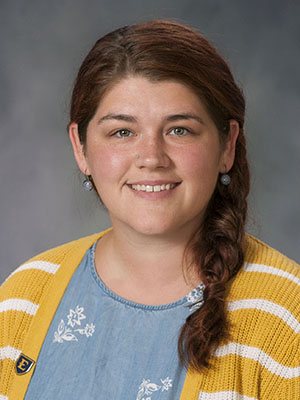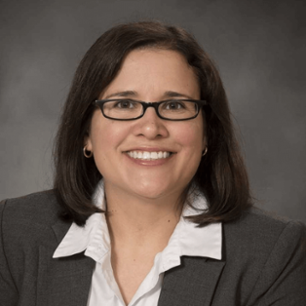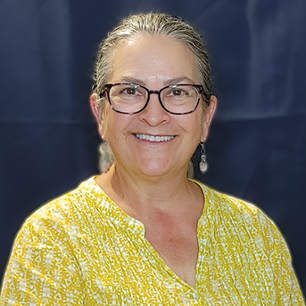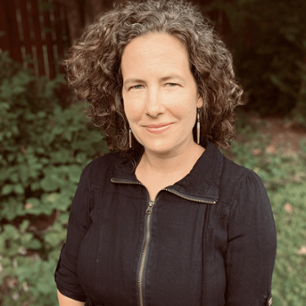Introduction
Doing qualitative research can be intimidating, especially in the age of generative AI. From identifying the right participants to collecting data in an ethical way to learning the latest methods of data analysis, the design process can be overwhelming. The Department of Sociology & Anthropology has brought together experts from seven departments across campus to provide a truly interdisciplinary curriculum in the theory and practice of qualitative research in the age of artificial intelligence. The Graduate Certificate in Qualitative Research Methods is intended for graduate students, working professionals and faculty who want to earn a credential in research design and implementation. The curriculum provides training in the foundations of research design, data collection, data analysis and interpretation, and representing findings for a variety of audiences while integrating the latest research technologies throughout the process. The program emphasizes training in rigorous empirical study design to answer research questions in the social sciences and health sciences. It is a 12-credit hour program and can be completed fully online, or through a hybrid of online and in person courses. There is no professional accreditation for this program.
About the Program
The Graduate Certificate is designed with two paths to completion—hybrid or fully online. Whether you are a working professional, a returning student looking to test the waters of graduate-level coursework, a current graduate student, or a faculty member wanting to refresh their research skills, the certificate can be completed over 4 semesters taking just a single, 3-credit course at a time.
-
Learning Outcomes
At the completion of this graduate program, students will be able to:
- Critically assess the rigor and quality of completed qualitative research studies.
- Generate a digital research workflow to organize, manage and implement qualitative research studies using qualitative data analysis software.
- Design and conduct qualitative research studies in an ethical, reflexive manner.
- Articulate the philosophical foundations of qualitative inquiry paradigms.
- Generate research questions that can be answered with qualitative research designs and methods.
- Analyze which qualitative research designs are best suited to answer social science research questions: e.g., participatory, applied/translational research, action research, phenomenology and community-based research designs.
- Collect a variety of qualitative data types: e.g., observations, photo-elicitation, oral history, interviews, focus groups, archival documents, social media/online conversational data.
- Analyze qualitative data using a variety of methods: e.g., thematic analysis, discourse, narrative, content analysis methods.
- Write up, represent, and communicate research findings in a way that is appropriate to the audience: e.g., film- making, journal articles, social media reels.
-
Program of Study
Approved Program of Study:
Foundations, 3 credits, choose one of the following:
SOCI 5230 Qualitative Research Methods ANTH 5627 Ethnographic Methods NRSE 6040 Qualitative Methods in Nursing Research (for Nursing students only) ELPA 7812 Qualitative Research (for Doctoral students only) Digital Qualitative Research Methods, 3 credits, choose one of the following:
SOCI 5260 Digital Qualitative Research Tools SOCI 5544 Qualitative Social Media Analysis Advisor-Approved Electives, 6 credits, choose two of the following:
ANTH 5627 Ethnographic Methods APST 5690 Appalachian Community Engagement COMM 5300 Qualitative Research in Communication COMM 5400 Autoethnography COBH 6220 Methods in Community Health Research NRSE 6040 Qualitative Methods in Nursing NRSE 6045 Advanced Qualitative Data Analysis in Nursing RTVF 5100 Documentary Film Research and Production SOCI 5057 Applied Sociology SOCI 5230 Qualitative Research Methods SOCI 5260 Digital Qualitative Research Tools SOCI 5320 Introduction to Evaluation SOCI 5544 Qualitative Social Media Analysis ECED 7812 Early Childhood Education Qualitative Research ELPA 7812 Qualitative Research (for Doctoral students only) ELPA 7814 Advanced Qualitative Research (for Doctoral students only) For more information, please view the Graduate Catalog.
Total: 12 credit hours
-
Course Sequence
The program of study is broken down into a two-year sequence.
Year One:
Fall 2026 Spring 2027 Summer 2027 Online SOCI 5260 Digital Qualitative Research (hybrid online/in person) ANTH5627 Ethnography (hybrid) NRSE 6045 Advanced Aualitative Data Analysis in Nursing - SOCI5057 Applied sociology (community-based participatory research) ELPA 7812 Educational Leadership, Qualitative Research 1 - SOCI5544 Social media analysis (hybrid in person/online) ELPA 7814 Educational Leadership, Advanced Qualitative Research - NRSE6040 Qualitative methods in nursing - - ELPA7812 Educational leadership, Qualitative research 1 - - (Under review)
ECED7812 Early childhood education qualitative research (Facun-Granadozo)
- In Person SOCI5230 Qualitative field research - - SOCI5057 Applied sociology (community-based participatory research) - - SOCI5260 Digital qualitative research (hybrid online/in person) - - APST 5690 Appalachian community engagement - - COBH 6220 Advanced Qualitative Methods in Community Health - - RTVF 5100 Documentary film research and production - - Year Two:
Fall 2027 Spring 2028 Summer 2028 online SOCI5260 Digital qualitative research SOCI5057 Applied sociology (community-based participatory research) NRSE6045 Advanced qualitative data analysis in nursing SOCI5230 Qualitative field research SOCI5544 Social media analysis (hybrid in person/online) ELPA7812 Educational leadership, Qualitative research 1 ELPA7812 Educational leadership, Qualitative research 1 NRSE6040 Qualitative methods in nursing ELPA 7814 Educational leadership, Advanced qualitative research ELPA 7814 Educational leadership, Advanced qualitative research ELPA7812 Educational leadership, Qualitative research 1 ECED 7812 Early childhood education qualitative research (Facun-Granadozo)
In Person SOCI5057 Applied sociology (community-based participatory research) ANTH5627 Ethnography APST 5690 Appalachian community engagement -
Application Requirements
Apply through the ETSU Application Portal; more information coming soon.
Note: The Graduate Certificate in Qualitative Research is in-process for Financial Aid approval, but is not approved at this time.
-
Faculty Information

Dr. Rebecca Adkins Fletcher
Appalachian Studies
Dr. Adkins Fletcher teaches APST 5690: Appalachian Community Engagement.
Contact: fletcherra1@etsu.edu or 423-439-7994

Dr. Erin E. Mauck
Community & Behavioral Health
Dr. Mauck teaches COBH 6220: Advanced Qualitative Methods in Community Health.
Contact: maucke@etsu.edu or (423) 439-6720

Dr. Candace Bright Hall-Wurst
Sociology & Anthropology
Dr. Bright Hall-Wurst teaches SOCI 5057: Applied Sociology, alternately.
Contact: brightcm@etsu.edu or 423-439-4926

Dr. Jill Channing
Educational Leadership & Policy Analysis
Dr. Channing teaches ELPA 7812: Qualitative Research and ELPA 7814: Advanced Qualitative Research.
Contact: channing@etsu.edu or 423-439-7623

Dr. Martha Copp
Sociology & Anthropology
Dr. Martha Copp teaches SOCI 5230: Qualitative Research Methods and is the Graduate Coordinator for the Sociology M.A.
Contact: coppm@etsu.edu or 423-439-7056

Dr. Brianna Cusanno
Communication & Performance
Dr. Cusanno teaches COMM 5300: Qualitative Research in Communication.
Contact: cusanno@etsu.edu or 423-439-7676

Dr. Jean Hemphill
Graduate Nursing
Dr. Hemphill teaches NRSE 6045: Advanced Qualitative Data Analysis in Nursing (Doctoral level).
Contact: hemphilj@etsu.edu or 423-439-4603

Shara Lange, MFA
Media & Communication
Professor Lange teaches RTVF 5100: Documentary Film Research and Production.

Dr. Leslie McCallister
Sociology & Anthropology
Dr. McCallister teaches SOCI 5057: Applied Sociology, alternately, and is the Chair of the Department of Scoiology & Anthropology.
Contact: mccallis@etsu.edu or 423-439-4998

Dr. Trena Paulus
Sociology & Anthropology
Dr. Paulus is the coordinator for the Qualitative Research Graduate Certificate. She teaches ANTH 5627: Ethnographic Methods, SOCI 5260: Digital Qualitative Research Tools, and SOCI 5544: Qualitative Social Media Analysis.
Contact: paulust@etsu.edu or 423-439-6733

Dr. Florence Weierbach
Graduate Nursing
Dr. Weierbach teaches NRSE 6040: Qualitative Methods in Nursing.
Contact: weierbach@etsu.edu or 423-439-4588
F.A.Q.
-
Is the graduate certificate eligible for financial aid and/or educational credit awards?
- Yes, the Segal Americorps educational credit award can be used.
- https://americorps.gov/members-volunteers/segal-americorps-education-award
- Yes, the graduate certificate was approved for financial aid as of fall 2024.
-
Can credits taken prior to admission to the graduate certificate be counted for the degree?
- Yes, the student needs to petition to do so and this is treated as a dual enrollment : https://etsu.jotform.com/203063768206959
-
Do I have to pay a fee to apply to the graduate certificate program if I am currently an ETSU graduate student?
No. If you are currently enrolled in another graduate program at ETSU, the fee should automatically be waived. If not, you can email gradadmissions@etsu.edu and we will adjust it. You will need to complete Dual Graduate Program: Form to request to pursue two graduate programs concurrently in conjunction with your program advisor and Dr. Paulus (coordinator for the qualitative research graduate certificate program). This form documents agreements around the sharing of courses between the two programs.
-
If I am currently a graduate student and have already taken (or will need to take) a class that is part of both my program requirement and the graduate certificate curriculum, can it count towards both degrees?
The Dual Graduate Program form covers this. The form records which courses will count between the two programs. Each coordinator will sign this form in agreement. If you have taken graduate work in the past and completed a program earning a degree or certificate then the course cannot be transferred in to use again. Under these circumstances, however, we have a Second Graduate Program form: https://etsu.jotform.com/212983932203960 which allows a “reduction” of the course load in the graduate certificate program if comparable work was completed in another graduate program. If you have taken an eligible graduate level courses but have not earned a degree or certificate with these courses, then you can request to transfer the courses in as long as you have earned a B or better, the course is approved by the program, and it was taken within matriculation limits.
-
Do I need to apply to the certificate program if I’ve already taken all the courses?
YES – and you must apply to the graduate certificate program the semester before you can graduate – so be sure to apply as soon as you are interested. Good news: there is no additional application fee if you are currently a graduate student.
-
Reduction of credits for subsequent graduate degree
If a student has completed one graduate program at ETSU, the Second Graduate Program form allows a student to reduce the graduate certificate credit hour requirement by 50% . This reduction is at the discretion of the graduate program coordinator. The student must have earned a grade of B or above in the course(s) being proposed as comparable. While enrolled in the graduate certificate program, at least half the course requirements must be taken after being admitted to the program.
In other words, six credit hours taken in the first graduate program can be used (if applicable) to complete the qualitative research graduate certificate program requirement of twelve credits.
Per graduate school policy, a 50% credit hour reduction is possible for a graduate certificate, but at least six credits of coursework must be completed while in this program.
For more details, visit: https://www.etsu.edu/policies/academic/graduate_school_policies/reduction-substitution-of-credits-for-subsequent-graduate-degree.php
-
Is there a limit to how long one might take to complete the required coursework?
Students must register each spring and fall semester until completion, or they must apply for re-admission. From the time that the student first begins taking graduate certificate coursework, all earned credit hours remain valid for up to 6 years. If the student needs to go beyond 6 years, the credits earned at the beginning of the certificate would need to be revalidated, following the revalidation process outlined by the Graduate School.
 Sam Wilson West Parking Lot C...
Sam Wilson West Parking Lot C...